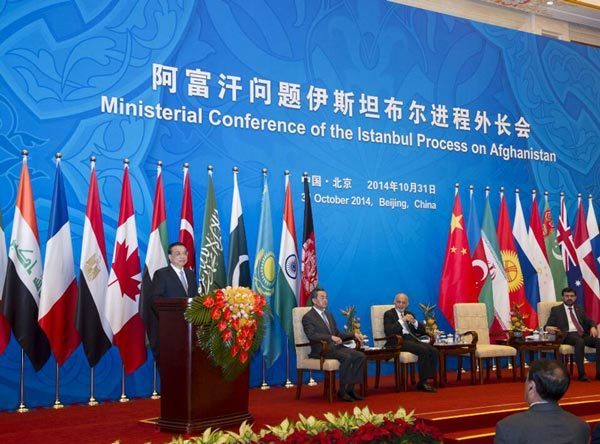Rebuilding Afghanistan a touchstone for China-US ties
- By Zhao Ruiqi
 0 Comment(s)
0 Comment(s) Print
Print E-mail China.org.cn, October 13, 2015
E-mail China.org.cn, October 13, 2015
|
|
|
Premier Li says that China will help support Afghanistan’s peaceful development and economic rebuilding. |
China and the United States jointly held a conference on the rebuilding and development of Afghanistan on Sept. 26 during the United Nations General Assembly. Participants pledged active multilateral cooperation to aid the war-torn country. China and the U.S. agreed to expand their current cooperation mechanism, a four-year-old training camp for Afghan diplomats, so as to cover the agricultural and medical sectors.
Advancing cooperation on Afghanistan is among the major achievements of Chinese President Xi Jinping's latest U.S. visit. It is a pivotal point for Beijing and Washington to shape an interactive trust-based cooperative relationship. However, that is easier said than done, for any concrete success, one transcending mere diplomatic ceremony, will take huge efforts from both countries.
First, the two countries should enhance basic mutual trust, improve their risk management capabilities, and set up a standardized communications mechanism. Neither Xi nor Obama wanted to countenance China as a rising power that will inevitably clash with the United States, which is currently a long-established power.
Realistically, practical interests and mistrust have caused frequent friction in China-U.S. bilateral ties. Therefore, the achievement of a consensus on Afghanistan issues seemed too precious to lose for both governments. On Asia-Pacific issues, China and the United States need to trust each other and move in a more synchronized way with the knowledge that bilateral cooperation does not mean China replacing the United States in regional dominance.
Second, China and the United States should encourage and facilitate direct talks between the Afghan government and the Taliban. Any talks concerning the future of Afghanistan should be conducted by the Afghan people.




Go to Forum >>0 Comment(s)